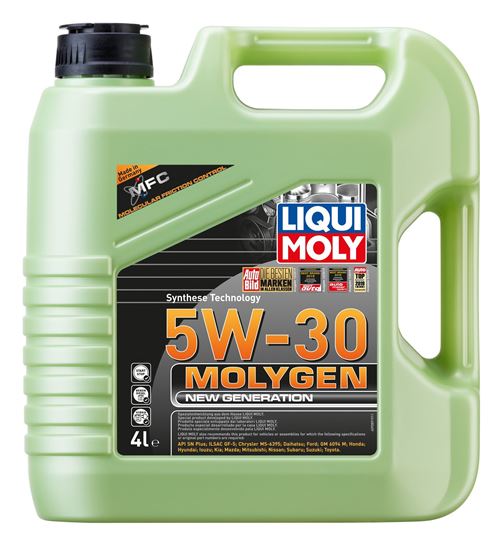- Joined
- Apr 7, 2024
- Messages
- 4
Hi all, newbie here to ask a question that crumbles my brain.
I'd like ask you a question about these two oils.
One is molygen with dpf symbol (purple and green sticker, recommended for benzin vehicles & sku 21225)
%20-%204%20L-500x500-product_popup.jpg)
and the other one also molygen but without dpf symbol (and psa certification-acea c2, for cat. conv. vehicles & sku 9089). I realized this difference after I changed my oil with 9089.

My engine is a ehdi euro5, Citroen Grand Picasso 2015(b78). Maker standart is ACEA C2 and LM suggest toptec4300 for my car.
Here are tech specs of this oils.
https://pim.liqui-moly.de/pdf/en_GB/liqui/76/P001757
https://pim.liqui-moly.de/pdf/en_GB/liqui/21/P004283
Now I wonder that do i have to change my oil to 21225 or toptec4300?
Is current situation creates a danger/malfunction for the engine?
Thank you all for your answer in advance.
Greetings
Similar with: https://bobistheoilguy.com/forums/threads/wrong-oil-or-not.321596/
I'd like ask you a question about these two oils.
One is molygen with dpf symbol (purple and green sticker, recommended for benzin vehicles & sku 21225)
%20-%204%20L-500x500-product_popup.jpg)
and the other one also molygen but without dpf symbol (and psa certification-acea c2, for cat. conv. vehicles & sku 9089). I realized this difference after I changed my oil with 9089.

My engine is a ehdi euro5, Citroen Grand Picasso 2015(b78). Maker standart is ACEA C2 and LM suggest toptec4300 for my car.
Here are tech specs of this oils.
https://pim.liqui-moly.de/pdf/en_GB/liqui/76/P001757
https://pim.liqui-moly.de/pdf/en_GB/liqui/21/P004283
Now I wonder that do i have to change my oil to 21225 or toptec4300?
Is current situation creates a danger/malfunction for the engine?
Thank you all for your answer in advance.
Greetings
Similar with: https://bobistheoilguy.com/forums/threads/wrong-oil-or-not.321596/
